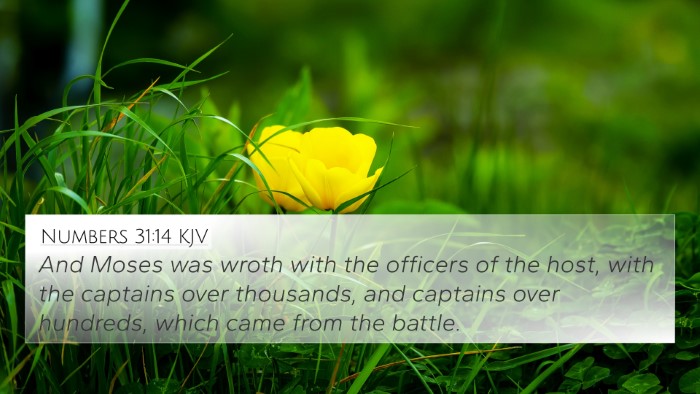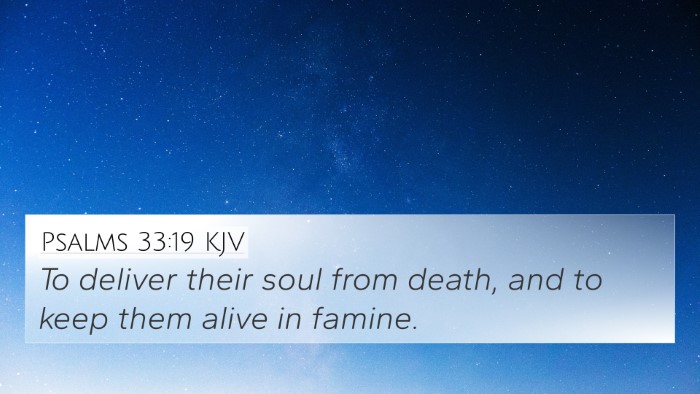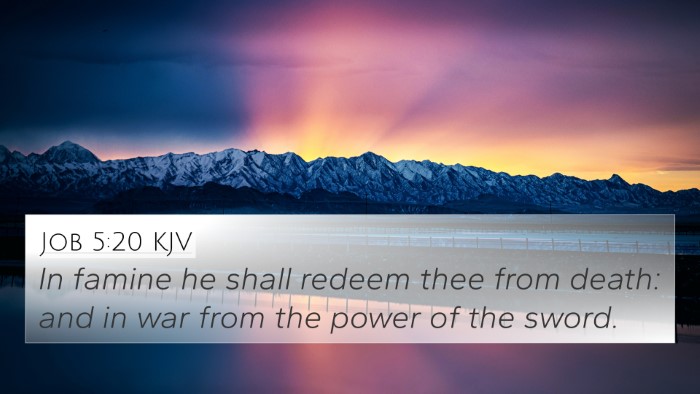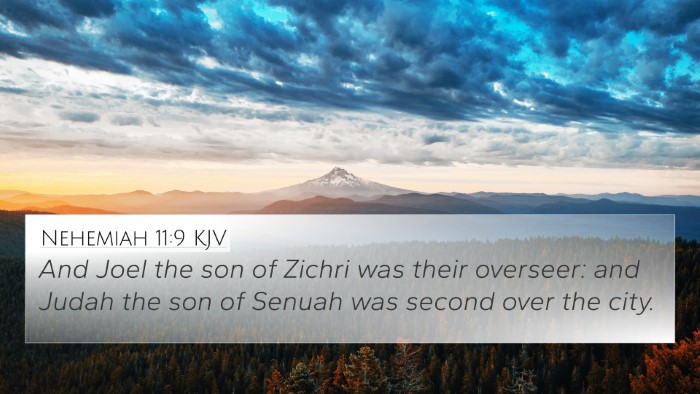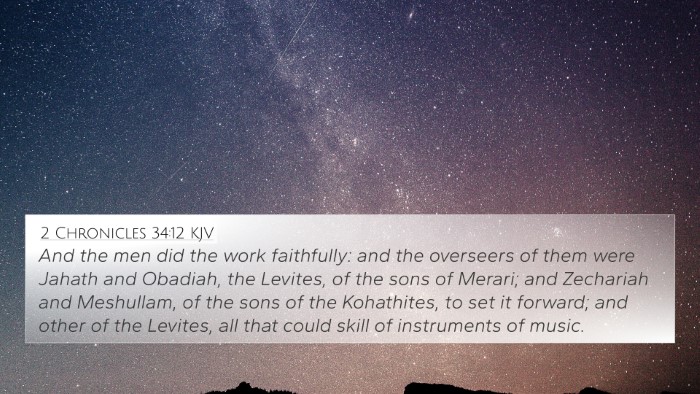Verse Meaning and Interpretation
This verse captures a moment of divine revelation through Joseph, where he interprets Pharaoh's dreams and advises on a strategic plan for the coming famine. The insights from public domain commentaries provide a comprehensive understanding of this significant scripture.
Overview of Joseph's Strategy
Joseph, having interpreted Pharaoh's dreams, proposes a practical solution to the forthcoming crisis. This involves:
- **Appointment of Officers:** Joseph advises Pharaoh to appoint officials to oversee the land.
- **Collecting Surplus:** During the seven years of abundance, a fifth of the harvest should be stored away for future needs.
Commentary Insights
According to Matthew Henry's Commentary, this initiative reflects Joseph’s sagacious and divinely inspired leadership. He emphasizes the foresight required to prepare for difficult times and praises Joseph for acting in the national interest rather than pursuing personal gain.
Albert Barnes adds that the advice given here is not merely practical but also demonstrates God’s providence. Joseph’s role serves as a mediator through whom God's plans unfold, aligning with the broader biblical theme of divine sovereignty.
Adam Clarke highlights the importance of the "fifth part" as both a reasonable percentage for taxation and a vital strategy for survival. This decision showcases not only foresight but the need for communal responsibility during times of hardship.
Connections to Other Scriptures
This verse relates to several other biblical passages that reinforce its themes of wisdom, providence, and preparation.
- Proverbs 21:20 - "There is treasure to be desired and oil in the dwelling of the wise; but a foolish man spends it up." This verse parallels Joseph’s wisdom in saving for future needs.
- Matthew 25:1-13 - The Parable of the Ten Virgins reinforces the necessity of preparedness and wise stewardship.
- 1 Timothy 5:8 - Highlights the importance of providing for one's family, echoing Joseph’s sacrificial leadership.
- Luke 14:28-30 - Emphasizes counting the cost before undertaking a project, mirroring Joseph's strategic planning.
- Acts 11:28 - Agabus forewarns of a famine, showing God's communication about future events.
- Malachi 3:10 - Encourages bringing the whole tithe into the storehouse, reflecting the principle of saving and preparation.
- Philippians 4:19 - Confirms God's provision for His people, aligning with Joseph's assurance about future resources.
Thematic Bible Verse Connections
The themes of wisdom, leadership, and preparation can be traced through several other scriptures:
- **Leadership and Service:** Mark 10:43-45 teaches the value of serving others as a leader.
- **God's Providence:** Romans 8:28 assures us that all things work together for good, emphasizing trust in divine planning.
- **Crisis Management:** Psalm 37:25 reassures of God's protection during times of difficulty.
- **Collective Responsibility:** Galatians 6:2 encourages bearing one another's burdens, which aligns with Joseph's approach to societal responsibility.
Cross-Referencing Biblical Texts
This verse is an excellent example for anyone seeking to engage in cross-referencing Bible study. The connections made between Genesis 41:34 and these additional scriptures provide a rich tapestry of biblical wisdom.
Using tools for cross-referencing, such as a bible concordance or a bible cross-reference guide, one can delve deeper into these connections, enriching their understanding of both the Old and New Testaments.
Conclusion
In summation, Genesis 41:34 serves as a powerful testament to the importance of foresight, divine guidance, and responsible leadership. The insights drawn from commentaries alongside relevant cross-references create a multifaceted understanding of not only this verse but the whole biblical narrative. Engaging in a comparative Bible verse analysis helps illuminate how these themes are interwoven throughout scripture, creating a richer, more profound understanding of God's word.



